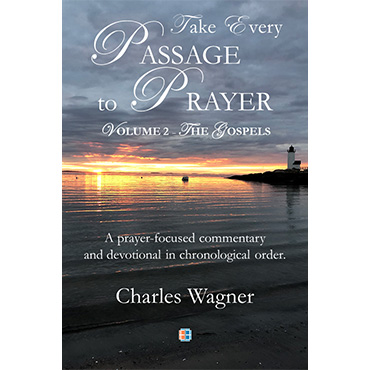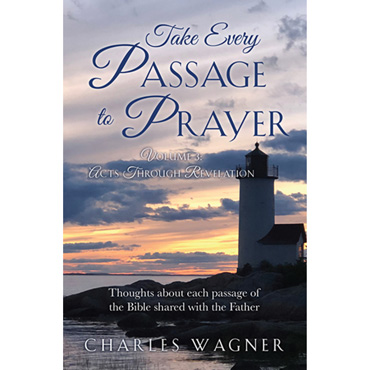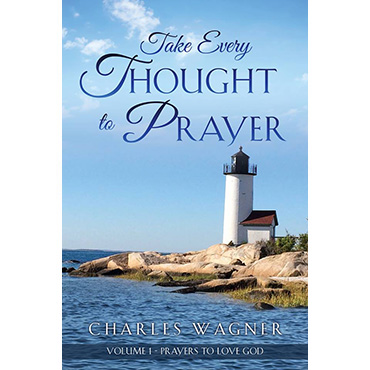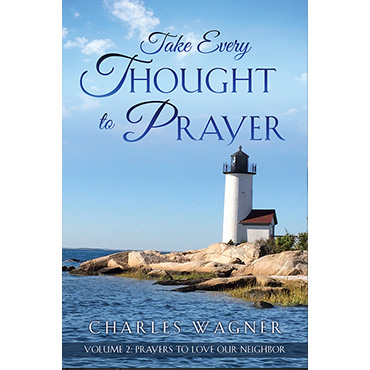The Gramazin Blog
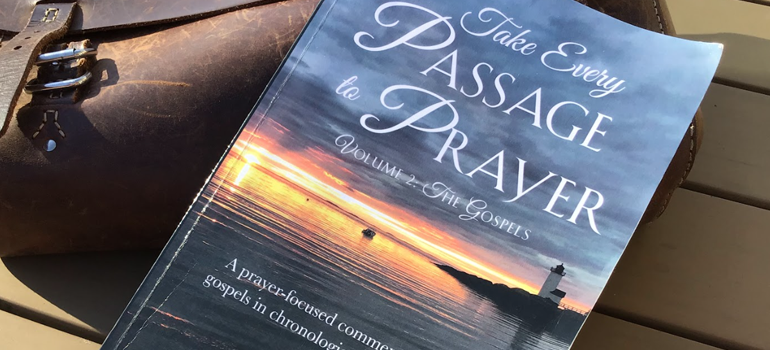
The Wise Men and the Flight to Egypt
Take Every Passage to Prayer - Volume 2, The Gospels
Tuesday May 28, 2024
Matthew 2:1-23, Luke 2:39-40
Father, please use me to spread the word that a baby born 2,000 years ago in a manger in Bethlehem is the only one who can save us from our sins. I want Jesus Christ to be so priceless to me that, metaphorically speaking, my heart would be willing to travel over 1,000 miles on the backs of smelly camels just to worship Him. Please use me to lead others to Jesus Christ. I ask that the light You put in me shines so brightly before others that they see Jesus in me and want to meet Him for themselves. Father, what gifts will I give You? My talents? My skills? My relationships? Father, give me a generous heart that seeks to give all that I can to the work of Jesus Christ. Please protect my life, my family, and my ministry from demonic and human powers that desire to silence my longing to share the gospel of Jesus Christ with others. Father, please give me a heart for those who have suffered great losses. Make me compassionate and direct me to bring healing, hope, peace, and joy into their broken hearts. Amen.
Father, three witnesses to a bank robbery were interviewed by detectives. The first witness testified that the bank robber ran from the bank carrying a pistol and got into the passenger seat of a blue car that sped off, nearly striking a young child on a bike. The second witness testified that the bank robber took off his mask, exposing his red curly hair, as he jumped into the passenger seat of a gray car that sped off. The third witness testified that a security guard chased after the diminutive bank robber who jumped into the passenger seat of a car that had a loud muffler.
Do we discredit the testimony of the second witness because the first witness did not report the robber took off their mask? Do we discredit the testimony of the first witness because the second and third witnesses did not report that the robber carried a pistol? Do we discredit the testimony of the third witness because neither the first nor second witness reported the loud muffler of the getaway car? Of course not. The unique perspective of each witness contributed to the detectives complete understanding of what happened after the bank robbery. The three witnesses all agreed that a bank robber ran from the bank and jumped into the passenger seat of a car.
Luke tells us in verse 39 of chapter 2 that Jesus’ family returned to Nazareth after they departed from the temple where they had met Simeon and Anna. However, Matthew 2:1-23 clearly states that the family fled to Egypt from Bethlehem and not Nazareth. Does this prove that the Bible has an error or an inconsistency? Not at all. As in the witnesses to the bank robbery, Matthew and Luke shared different perspectives on the eyewitness accounts of Jesus’ life. Luke chose to ignore the flight of the family to Egypt. He concluded the second chapter of his gospel account by quickly jumping ahead a few years to a time when the family was living in Nazareth. Matthew, on the other hand, thought their flight to Egypt was important to share with us.
Word spread throughout the region that the “King of the Jews” had been born in Bethlehem. It is certainly reasonable to suspect that the joyous shepherds told their employers, who were associated with the temple in Jerusalem, the reason why they left their posts and ventured into Bethlehem. It is also reasonable to suspect that Simeon and Anna shared with others their encounter with Jesus in the temple. It is likely that temple officials were present when the latter two held the baby and spoke prophetic words about Him. This created a stir in Jerusalem, especially among the religious and political elite who thought they ruled the Jews. The announcement of the birth of the Messiah did not bring them joy; it brought them anxiety and insecurity as they felt this baby was a threat to their power.
In Daniel 1-2, we learn that there were magi (magicians, scientists, astrologers) who served King Nebuchadnezzar of Babylon (modern day Iraq, east of Israel). Daniel most likely got to know these “wise men” and shared with them two prophecies about a future King to be born.
- “The scepter shall not depart from Judah, nor a lawgiver from between his feet, until Shiloh comes; And to Him shall be the obedience of the people.” Genesis 49:10. (NIV)
- “I see him, but not now; I behold him, but not near. A star will come out of Jacob; a scepter will rise out of Israel. He will crush the foreheads of Moab, the skulls of all the people of Sheth.” Numbers 24:17 (NIV)
The wise men understood that one day a King, a star, the Morning Star (Revelation 22:16), will rise out of Israel, a land to the west of Babylon.
It took at least a few weeks, or months, for word to reach Babylon that the “King of the Jews” had been born in Bethlehem. The wise men of the day, who had been taught these prophecies by the generations before them, began their journey west a few weeks later in order to see the Jewish Messiah with their own eyes and worship Him . However, unlike the shepherds, who were practically given the physical street address of the manger by the angel, these wise men had no idea where this baby could be found . They thought the starting place was to talk to the religious and political leaders in Jerusalem, naively expecting such leaders to be similarly rejoicing in the birth of the Messiah. They were not.
Herod the Great was confirmed as King of Judea by Caesar Augustus in 30 BC. He executed his wife, his mother-in-law, his brother-in-law, and his three sons, Alexander, Aristobulus, and Antipater. Towards the end of his life he became increasingly suspicious and paranoid, arresting many of his perceived enemies, calling for their execution upon his death. When he wasn’t arresting or murdering people, he built many buildings in Jerusalem, including the Second Temple, a theater, and an amphitheater. He rebuilt Samaria and built the port of Caesarea Maritima. He became a hero to many when he brought famine relief to the region from Egypt. He was a king to be feared and to be thanked.
Herod, and Edomite by birth, was a gifted politician who managed to remain in good standing with Caesar and with the religious leaders in Jerusalem who were grateful for his work on the temple. The Chief Priest was also a political appointee by Herod. They had a mutual understanding: “I’ll scratch your back, if you scratch mine.” These leaders, seeking to remain on Herod’s good side, didn’t hesitate to share with a known murderer the Old Testament prophecy indicating that the Messiah will be born in Bethlehem. If Herod knew where to look for the child, perhaps he would do them all a favor and eliminate the threat before the “King of the Jews” grew into an adult. These same religious leaders would plot the murder of Jesus 30 years later (John 11:53).
After a trip of up to two months , the wise men from the east unexpectedly showed up at Herod’s palace in Jerusalem, perhaps as early as six months after the birth of Jesus. Herod tasked them to go to Bethlehem and find the exact location of the child so that, “cough”, Herod could come and worship the child himself.
“It’s a deal! We will come back with the location.”
This passage tells us that a star led the wise men to the home where Joseph, Mary, and Jesus were now living in Bethlehem. In Nehemiah 9:12, we read that You led the people of Israel by night by a pillar of fire to give them light on the road which they should travel. This same fire, Your Shechinah glory, rested on the tabernacle at night. Father, I believe it was not an astronomical anomaly that led the wise men to the house where Jesus was. It was the Holy Spirit. The light of the gospel of Jesus Christ, inspired by the Holy Spirit, leads wise men (those who seek Him) of all ages to find Jesus. The wise men rejoiced at seeing the star because they knew they were seeing the glory of God.
The star settled on a house in Bethlehem. Within minutes, the wise men worshipped Jesus and gave Him three presents due to the fact He was royalty:
- Gold - the family was poor and needed money for their flight to Egypt. The Holy of Holies in the temple, the place where sins are atoned for, was covered with gold. Jesus is the perfect sacrifice, more priceless than gold.
- Frankincense - representing incense burned in the Holy Place in the temple. Jesus is our intercessor and mediator with You.
- Myrrh - represents the oil used in the temple to ceremonially clean the temple, the altar, the utensils, and the priests before sacrifices. Jesus shed blood cleanses us from our sins. It is also believed that the myrrh was symbolic of the death of Jesus as it is used in embalming.
It is clear that the wise men, either Gentiles or Jews from the lost tribes of Israel, were believers in Jesus Christ.
Father, You are sovereign over all things. You made sure that Herod would not kill Jesus prematurely. There were lives You had planned for Him to touch, lessons that He needed to teach, miracles for Him to perform, and the ultimate sacrifice He needed to pay on the cross of Calvary. Therefore, ...
- You warned the wise men to take a different route home, bypassing Jerusalem, and King Herod, so that Herod would not uncover the specific location of Jesus.
- You warned Joseph in a dream to take his family and flee to Egypt because Herod will send an execution squad to kill all boys near Bethlehem under the age of two.
In a scene resembling the climactic escape moment in a Hollywood thriller, Joseph, being obedient and courageous as both husband and father, packed up the family and fled to Egypt in the dark of night. The family arrived safely in Egypt and were welcomed by the large Jewish community that lived there.
Herod was furious that the wise men had not returned to his palace with the address of Joseph, Mary, and Jesus.
“Fine. If no one is going to tell me where that baby is, I’ll kill all of the two-year-old boys in Bethlehem and the surrounding region. Certainly, the boy I want to kill will be included in the massacre.”
Father, what kind of person sends executioners to slaughter little children? What kind of soldier carries out that kind of execution? What kind of person is so evil?
- Someone who is a human being. (Genesis 6:5)
- Someone who is arrogant. (Psalm 10:2-12)
- Someone who does not fear God. (Psalm 36)
- Someone who lacks compassion for others. (Psalm 73:7)
- Someone who is greedy. (Proverbs 1:8-19)
- Someone who fears having their evil deeds exposed by the light of God. (John 3:20)
- Someone who is self-centered and rejects the truth. (Romans 2:8-9)
- Someone who is influenced by demonic powers. (Ephesians 6:12)
Your Word tells us that “those who plow evil and those who sow trouble reap it” (Job 4:8). Your Word also tells us that it would be better for anyone who causes a child to stumble (murder would qualify) to have a large millstone hung around their neck and to be drowned in the sea than to stand before Almighty God and give an accounting for what they have done to a child (Matthew 18:6).
It has been reported that Herod died of an excruciatingly painful disease that caused him to emit a deeply offensive odor similar to that of a corpse . Father, this may have been a down payment for what awaited Herod after his death. While Herod did answer to You for the infanticide he committed, the pain he caused to thousands of people lasted throughout their lifetimes.
While there was certainly anguish over Herod’s murderous rage in Bethlehem and other nearby communities, Your Word mentions Ramah in particular. The mothers were grieving so much for their murdered boys that they could not be comforted. Ramah, about 8 miles north of Jerusalem, was the home to Samuel's mother Hannah (1 Samuel 1:1-2). It was also the place where the Babylonians gathered the Jews before moving them to Babylon (Jeremiah 40:1). Ramah was located in the land that had been given to Benjamin, one of Rachel's two sons. Rachel had been desperate because she had no children (Genesis 30:1). Now she figuratively weeps again, that babies in her family over a thousand years later had been slaughtered and young mothers, like her, had been made childless (Jeremiah 31:5).
Herod Archelaus, who was not executed by his father, replaced Herod the Great. His reputation was also one of violence. A few years later, when You called Joseph and Mary to move back to Judea, You led them not to Bethlehem but to Nazareth where Herod Archelaus did not rule. Like Moses and the Israelites in the book of Exodus, Jesus is returning from Egypt to the promised land. This fulfilled another prophecy of the Old Testament (Hosea 11:1).
We do not know how the family was received in Nazareth, but Jesus gave us a hint in Luke 4:24 that the family was never fully embraced by the community. The gossip most likely continued in the neighborhood that the couple may have had a child out of wedlock.
Though the first thirty years of Jesus life were not recorded by the gospel writers, we do know several things about His youth:
- Jesus grew up in and was associated with Nazareth (Matthew 26:71).
- Jesus was a carpenter (Mark 6:3).
- He had four brothers and at least two sisters (Mark 6:3).
We learn from this passage that:
- Jesus became strong in spirit, and He was filled with wisdom. Jesus had incredible insight and understanding.
- The grace of God was upon Him. Jesus prospered in all that He did.
Father, I ask for Your grace as my imagination and reason step into conjecture about aspects of Jesus’ childhood that are not recorded in Your Word. I believe it is reasonable to speculate on the following:
- Jesus’ character was unique for a boy in Nazareth. Therefore, He was considered different from the other children. Many adults and children were drawn to Him while other adults and children were fearful of Him because of His uniqueness.
- His family experienced the kind of things most families experience: financial struggles, health issues, parents having disagreements, siblings misunderstanding Him and fighting amongst themselves, siblings being rebellious of Joseph and Mary, problems with relatives, and difficulties with neighbors.
- Other children lived in proximity to Jesus. They asked Jesus to play with them. Therefore, Jesus understood what it was like to be a child playing games with other children. Jesus had compassion for children approximate to His age who had challenges in life. It is reasonable to conclude that Jesus did have childhood friends whom He cared about and spent time with. These children were no doubt on His mind while He ministered later in life.
- It is reasonable to assume that there were girls in Nazareth who were the same age as Jesus. It is also reasonable to assume that these girls were like most other girls throughout history - they were attracted to a boy who was kind, thoughtful, caring, sweet, and a good communicator. Such girls might also have been attracted to a boy who was a bit of a maverick. They may have been attracted to a boy who clearly had leadership potential. Therefore, it is reasonable to conclude that there was at least one girl in Nazareth who had a crush on Jesus. Jesus, being who He was, most likely understood how that girl felt about Him. Your Word tells us in Hebrews 4:15 that Jesus was tempted in every way we are, but He was without sin. Jesus did not desire any female from the lusts of his heart; there were none. However, it is likely Satan dangled a cute girl in front of Him, but the attempt was unsuccessful (James 1:13). I can imagine Him gently telling the girl that He was not interested in a relationship with any girl because His purpose in life is to suffer for the sake of the Kingdom of God. I can imagine Jesus praying for this girl, who most likely became another man’s wife, even as He traveled around Galilee ministering to the needy and preaching the gospel.
Amen.
36. The New Testament was not assigned chapters and verses until the 16th century.
37. It takes time to organize a caravan and prepare the pack animals to travel approximately 600 miles.
38. The Jews were often despised in the ancient Near East. The only explanation for the wise men’s fascination with Jesus is that they had come to believe, perhaps from the stories of Daniel so long ago, that a Jewish baby will become the Savior of the world.
39. They did not know the prophetic word of Micah (5:2) that this King would be born in Bethlehem.
40. A descendant of Esau, the brother of Jacob, who sold his birthright for stew (Genesis 25:29-34, Ezekiel 35).
41. It is about 650 miles from Bagdhad, Iraq (near Akkadian Babylon in Biblical times) to Bethlehem in Judea. The walk included climbing a steep slope, going down into a valley, and climbing back up the other side. That’s a 65-day (six-to-seven week) trip at a 10 mile a day pace.
42. Herod is believed to have died in 4 AD. This puts Jesus’ birth anywhere between 6-4 BC.
43. Some speculate that the star was a lining up of Jupiter and Saturn, Venus, a comet, or a supernova.
44. Yes, the Bible does say that Joseph and Mary lived in a house in Bethlehem (Matthew 2:11). The manger scene was most likely just for the night that Jesus was born.
45. It is an estimated 520 miles from Bethlehem to what is now Cairo, Egypt. The family with the young child most likely didn’t travel more than 10 miles a day. Their journey to Egypt most likely took them almost two months to complete.
46. A large stone used to grind wheat and other grains, too large for any one person to move without tools.
47. Modern science has determined that Herod died of the hardening of the arteries and deterioration of the heart and kidneys. He may have also had cirrhosis of the liver, hypertension, or diabetes. The symptoms could include blood poisoning, itching, abdominal pain, diarrhea, ulceration of the bowels, and wounds that would attract maggots.
48. Herod Archelaus was a central figure in an uprising by the Jews who rebelled after the Roman golden eagle was put above the entrance to the temple. The Jews directly involved were burned alive and over 3,000 Jews were killed during the celebration of Passover. The resulting riots, and Archelaus inability to control them, led to this banishment from the region by Rome.
49. Matthew 2:23 refers to a prophecy stating that Jesus will be “called a Nazarene.” However, that text cannot be found in the Old Testament. Theologians believe Matthew may have been referring to Isaiah 11:1 and/or Jeremiah 33:15, where it is said that a “righteous Branch will sprout from David’s line.” The word used for branch is nazir or neser, from which the town of Nazareth was named. Others suggest that Matthew is referring to a Nazirite, a man set aside to serve God exclusively (Numbers 6:1-21).
50. Let’s say that Jesus was born in 4 BC and that his parents went down to Egypt in 4 or 3 BC. It is believed that Herod was succeeded by Herod Archelaus in 1 AD. This would suggest the family moved back to Nazareth between 1 and 3 AD when Jesus was 5 to 7 years old. They would have lived in Egypt for approximately 4 to 6 years. It is reasonable to think that brothers and/or sisters of Jesus were born to Joseph and Mary while they were in Egypt. It is also reasonable to think Jesus had at least beginner’s carpentry skills by this time.
51. Nazareth is located about halfway between the Sea of Galilee and the Mediterranean Sea. Jesus could walk to either sea from His hometown in one tiring day. Nazareth was not a popular place to live (see John 1:46). The recent archeological discovery of a large bathhouse in Nazareth strongly suggests Nazareth was the home of a garrison of hated and despised Roman soldiers.


